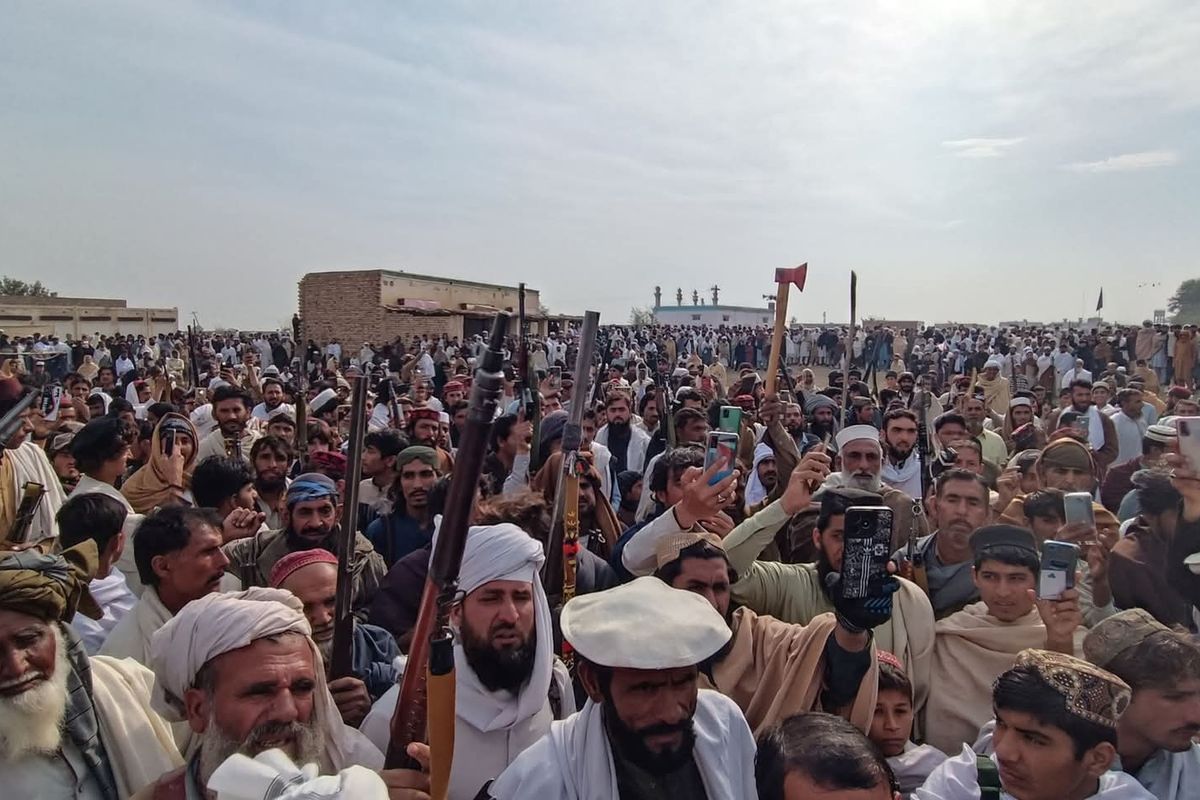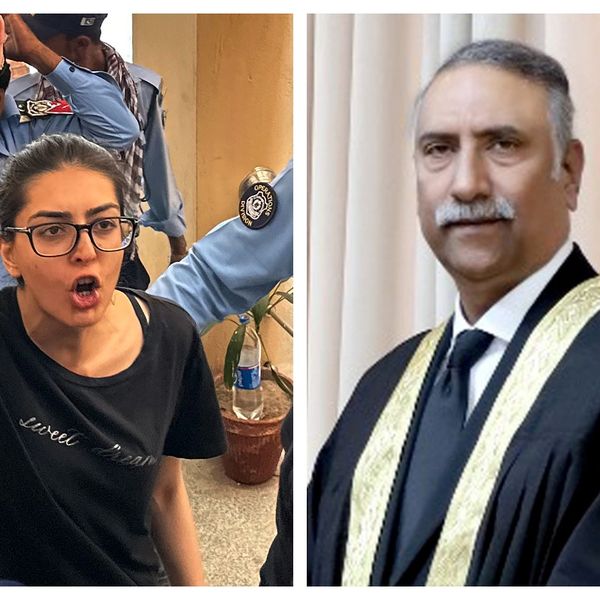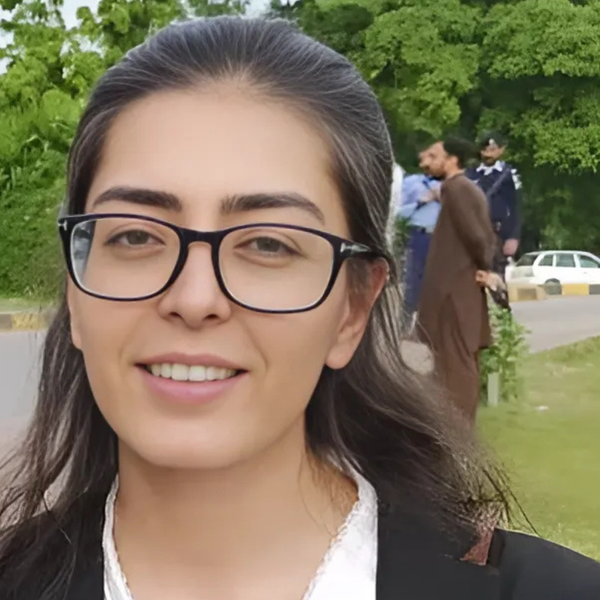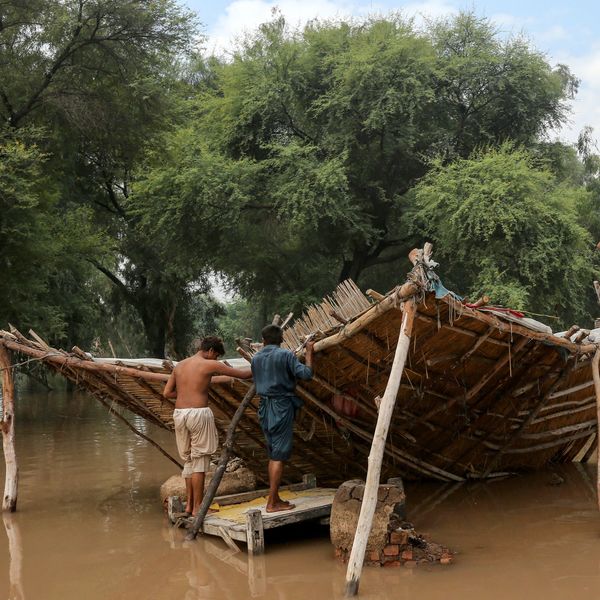Armed protestors occupy bazaar in Pakistan's Lakki Marwat over water dispute
Local farmers block polio teams, threaten Punjab gas pipelines to demand irrigation water
Kamran Ali
Correspondent Nukta
Kamran Ali, a seasoned journalist from Khyber Pakhtunkhwa, Pakistan, has a decade of experience covering terrorism, human rights, politics, economy, climate change, culture, and sports. With an MS in Media Studies, he has worked across print, radio, TV, and digital media, producing investigative reports and co-hosting shows that highlight critical issues.

Local residents protest water access from Marwat Canal in Lakki Marwat, Pakistan, February 21, 2025.
Nukta
Tribal protesters occupy bazaar for 12 days demanding dam water for irrigation
Dam flow at 500 cusecs versus 1,700 needed due to severe rainfall drop
Recent water access had revived farming on 2 million kanals of barren land
"Water is life" was scrawled across a placard held by a young schoolboy among hundreds of protesters in Pakistan's remote Lakki Marwat district, where a fight over irrigation water has evolved into an armed standoff.
For 12 days, farmers and villagers have occupied Tajori Bazaar, demanding authorities release water from the Bannu Baran Dam into the Marwat Canal. The protesters, led by the Marwat Bettani tribal movement, argue that their region's survival hinges on delivering this water to their parched fields.
Young demonstrators now carry weapons and block police access, while expanding their protest to disrupt oil and gas operations and boycott crucial polio vaccination efforts in a region where the disease remains a threat.
60-year-old dam at center of conflict
The Bannu Baran Dam, constructed in 1962, was designed primarily to support irrigation in the Lakki Marwat and Bannu districts. The dam draws its water mainly from the Kurram River and rainwater streams.
- YouTubewww.youtube.com
For nearly 25 years, water from the dam to the Marwat Canal remained cut off. After persistent protests by the Marwat and Bettani tribes, water supply was restored last year. However, the flow has recently been suspended again, sparking fresh demonstrations by the affected communities.
During the long suspension, farmers in Lakki Marwat were forced to rely solely on rainfall, leaving vast tracts of land barren.
Tribal leaders threaten escalation
In an interview with Nukta, Inam Khan, Chairman of the Marwat Bettani Qaumi Tehreek, emphasized that the tribes are demanding their rightful share of resources, declaring that water is the foundation of all resources.
"After water was restored last year, wheat was cultivated across nearly 2 million kanals of land in Lakki Marwat. This not only caused wheat prices to plummet from PKR 16,000 to 6,000 per 100 kg sack but also redirected young people's mindset from negativity toward business and trade," Inam explained.
Inam asserted that the Marwat Canal is entitled to 850 cusecs of water from the Kurram River or Bannu Baran Dam. "If our share is granted, we will end the sit-in," he warned. "Otherwise, the state will be responsible for any consequences."
Inam emphasized the protesters' commitment to peace while asserting their right to self-defense under the Constitution. "We will maintain our boycott of the polio campaign and continue disrupting oil and gas supplies," he said. "We may also be forced to cut gas pipelines to Punjab."
Neighbor district claims supply crisis
Qudratullah, Executive Engineer (XEN) of Bannu Canal, explained that Bannu is entitled to 1,700 cusecs of water from the Kurram River, which irrigates about 0.1 million acres of land.
"When water flow increases, it is directed to the Baran Dam and then to the Marwat Canal. However, due to insufficient rainfall, the Kurram River's current flow is only 500 cusecs, which cannot meet Bannu's water needs. As a result, the people of Bannu are refusing to allow any water to be diverted to the Marwat Canal," he said.
Pir Syed Qaiser Shah, founder of the Bannu Bachao Tehreek (Save Bannu Movement), explained that the Baran Dam depends on rainfall for its water supply. "The people of Bannu have no objection to water being diverted to the Marwat Canal," he said. "But if there is no water, how can we send it to the canal?"
Drought worsens crisis
Fahim Khan, Deputy Director of the Khyber Pakhtunkhwa Meteorological Department, reported that the province has experienced a significant 40% decrease in rainfall compared to last year. "While 43 millimeters of rainfall is considered normal for the region, and we recorded 47mm last year, this year the province has received only 25.8mm of rainfall, severely impacting surface water resources," Fahim explained.

Dr. Muneeb ur Rehman, Regional Director of the Pakistan Council of Research in Water Resources (PCRWR), told Nukta that climate change has dramatically altered rainfall patterns, leading to higher temperatures and declining surface water levels. He noted that credible research on surface water management remains inadequate.
"We must reduce water consumption, particularly by switching from flood irrigation to drip irrigation. This change could help address growing water scarcity issues, as the government cannot afford the cost of artificial rainfall," Dr. Muneeb explained.
Officials seek compromise
Zeeshan Abdullah, Deputy Commissioner of Lakki Marwat, said that the district administration is actively negotiating with the protesters. "We are trying to help them understand that water shortage is a critical issue, and we cannot divert water from one community to another," he explained.
A police official, speaking on condition of anonymity, revealed that certain individuals have deliberately escalated tensions to serve their personal interests, particularly to avoid arrest. "We have identified about 30 protesters, and if they continue to refuse negotiations, we will proceed with arrests. Warrants have already been issued for most of them under the 3 MPO," the official said.
Muhammad Johar, a ruling party member of the KP Assembly from Lakki Marwat, acknowledged that the residents' demand for water is legitimate and that they should receive this essential resource. "The water levels in both the Kurram River and Baran Dam have dropped significantly due to insufficient rainfall, creating ongoing challenges," he said. "I have raised this issue with Chief Minister Ali Amin Gandapur and am hopeful that after negotiations, we will devise a plan to ensure water supply to the people."
Inam rejected claims of water shortage, asserting that the administration lacks commitment to supplying water to the Marwat Canal and is simply making excuses.
Inam rejected claims of a water shortage, accusing the administration of neglecting the Marwat Canal's water supply and making excuses. "There is no concrete evidence that water flow has decreased, but even if it has, the Marwat tribe must receive its rightful share, regardless of whether it falls below 100 cusecs," he said.










Comments
See what people are discussing